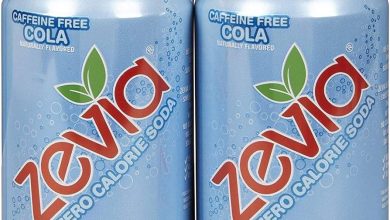Squid (Red) – Nutritional Information and Benefits
Squid, particularly the red variety, is a nutritious seafood option that offers a low-calorie, high-protein boost to your meals. Known for its unique flavor and tender texture, squid is a popular ingredient in various global cuisines, from Mediterranean to Asian dishes. Its rich protein content makes it an excellent choice for those looking to support muscle growth or maintain a balanced diet. Below, we explore the nutritional breakdown of red squid, along with its potential health benefits.
Nutritional Information (Per 100g)
| Nutrient | Amount |
|---|---|
| Energy | 78.63 kcal |
| Protein | 16.25 g |
| Total Fat | 1.44 g |
| Saturated Fats | 0.45 g |
| Carbohydrates | 0.0 g |
| Fiber | 0.0 g |
| Sugars | 0.0 g |
| Calcium | 14.15 mg |
| Iron | 0.26 mg |
| Magnesium | 35.74 mg |
| Phosphorus | 167.0 mg |
| Potassium | 134.0 mg |
| Sodium | 121.0 mg |
| Zinc | 0.95 mg |
| Copper | 0.15 mcg |
| Manganese | 0.02 mg |
| Selenium | 47.43 mcg |
| Vitamin C | 0.0 mg |
| Thiamine (Vitamin B1) | 0.03 mg |
| Riboflavin (Vitamin B2) | 0.02 mg |
| Niacin (Vitamin B3) | 0.71 mg |
| Vitamin B6 | 101.0 mcg |
| Folate (Vitamin B9) | 1300.0 mcg |
| Vitamin B12 | 0.0 mcg |
| Vitamin A | 0.0 mcg |
| Vitamin E | 0.47 mg |
| Vitamin D2 | 0.0 mcg |
Health Benefits of Red Squid
-
High in Protein: Squid is a rich source of high-quality protein, providing 16.25 grams per 100 grams. This makes it an excellent choice for individuals looking to build or repair muscle, as well as those seeking to maintain a healthy, balanced diet.
Related Articles -
Low in Calories: At just 78.63 kcal per 100 grams, squid is a low-calorie food, making it ideal for those on calorie-conscious diets or anyone looking for a healthy, light meal option.
-
Rich in Essential Minerals: Squid offers a variety of important minerals, including phosphorus (167 mg), magnesium (35.74 mg), and potassium (134 mg). These contribute to overall bone health, muscle function, and electrolyte balance.
-
Low in Fat: With only 1.44 grams of total fat and just 0.45 grams of saturated fat, squid is a heart-healthy food that fits well within a low-fat diet.
-
Selenium Source: Squid is an excellent source of selenium (47.43 mcg), an essential trace mineral that plays a critical role in antioxidant defense and thyroid health.
-
B-Vitamins: Squid contains several B-vitamins, including niacin (0.71 mg), riboflavin (0.02 mg), thiamine (0.03 mg), and vitamin B6 (101 mcg), all of which contribute to energy metabolism, brain function, and the maintenance of healthy skin and hair.
-
Sodium Considerations: While squid contains 121.0 mg of sodium, it’s still important to consume in moderation, especially for those who need to monitor their sodium intake.
Allergen Information
Squid is classified as a shellfish and can trigger allergic reactions in individuals who are sensitive to seafood. Common allergic symptoms may include hives, swelling, and difficulty breathing. It is crucial to be aware of potential shellfish allergies when preparing or consuming squid. Always consult with a healthcare provider if you have concerns about allergies or reactions to seafood.
Dietary Preferences
Squid is suitable for the following dietary preferences:
- High-protein diets: Its significant protein content makes it an ideal option for those looking to increase protein intake, such as athletes or bodybuilders.
- Low-calorie diets: Due to its low-calorie content, squid is a great choice for individuals aiming to lose or maintain weight.
- Gluten-free: Squid is naturally gluten-free, making it a safe and healthy choice for individuals with gluten sensitivities or celiac disease.
- Low-fat diets: Squid’s minimal fat content allows it to fit well within a low-fat diet.
- Mediterranean diet: As a lean source of protein and rich in essential nutrients, squid is a suitable ingredient in Mediterranean-style meals.
Cooking Advice
Red squid can be prepared in a variety of ways, such as grilling, frying, or simmering in soups and stews. When cooking squid, it’s essential to avoid overcooking, as this can cause it to become tough and rubbery. A quick sauté or grill over medium heat is ideal to preserve its tender texture and delicate flavor. Pair squid with fresh vegetables, herbs, or a zesty citrus dressing for a light and flavorful dish.
Conclusion
Red squid is a nutrient-dense seafood choice that delivers an impressive range of health benefits. With its high protein content, low calorie and fat profile, and an abundance of essential minerals, it is an excellent addition to any healthy eating plan. While it’s best to be mindful of possible shellfish allergies, squid’s versatility in the kitchen ensures it can be enjoyed in a wide variety of dishes. Whether you choose to grill, fry, or incorporate it into a seafood stew, squid provides a delicious and nutritious boost to your culinary repertoire.










